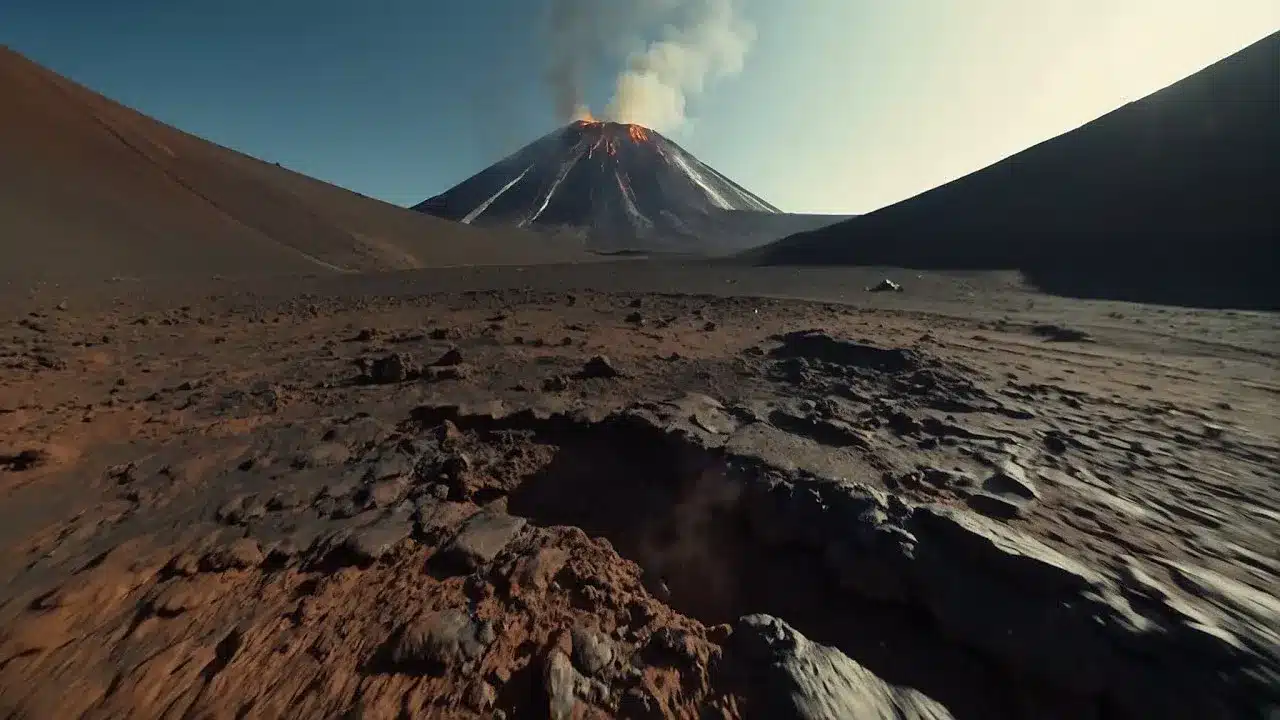About Noctis Volcano
- It is a newly-discovered volcano located just south of Mars’ equator, in Eastern Noctis Labyrinthus, west of Valles Marineris, the planet’s vast canyon system.
- The volcano sits on the eastern edge of a broad regional topographic rise called Tharsis, home to three other well-known giant volcanoes: Ascraeus Mons, Pavonis Mons, and Arsia Mons.
- The massive structure spans over 9,022 meters in elevation, higher than the highest peak, Mount Everest, on Earth.
- The volcano is spread in a huge area with a width of over 450 kilometres.
- The central summit area is marked by several elevated mesas forming an arc, reaching a regional high and sloping downhill away from the summit area.
- The gentle outer slopes extend out to 225 kilometres (140 miles) away in different directions.
- The caldera remnant–the remains of a collapsed volcanic crater once host to a lava lake–can be seen near the centre of the structure.
- Lava flows, pyroclastic deposits (made of volcanic particulate materials such as ash, cinders, pumice, and tephra), and hydrated mineral deposits occur in several areas within the structure’s perimeter.
- It was active for a very long time on the Red Planet, and in its southeastern part lies a thin, recent volcanic deposit beneath which glacier ice is likely still present.
Q1) What is a Volcano?
A volcano is an opening in the earth’s crust through which gases, molten rock materials (lava), ash, steam, etc. are emitted outward during an eruption. Such vents or openings occur in those parts of the earth’s crust where the rock strata are relatively weak. Volcanic activity is an example of an endogenic process.
Source: Giant volcano discovered on Mars is promising location to hunt for life
Last updated on June, 2025
→ UPSC Notification 2025 was released on 22nd January 2025.
→ UPSC Prelims Result 2025 is out now for the CSE held on 25 May 2025.
→ UPSC Prelims Question Paper 2025 and Unofficial Prelims Answer Key 2025 are available now.
→ UPSC Calendar 2026 is released on 15th May, 2025.
→ The UPSC Vacancy 2025 were released 1129, out of which 979 were for UPSC CSE and remaining 150 are for UPSC IFoS.
→ UPSC Mains 2025 will be conducted on 22nd August 2025.
→ UPSC Prelims 2026 will be conducted on 24th May, 2026 & UPSC Mains 2026 will be conducted on 21st August 2026.
→ The UPSC Selection Process is of 3 stages-Prelims, Mains and Interview.
→ UPSC Result 2024 is released with latest UPSC Marksheet 2024. Check Now!
→ UPSC Toppers List 2024 is released now. Shakti Dubey is UPSC AIR 1 2024 Topper.
→ Also check Best IAS Coaching in Delhi






















